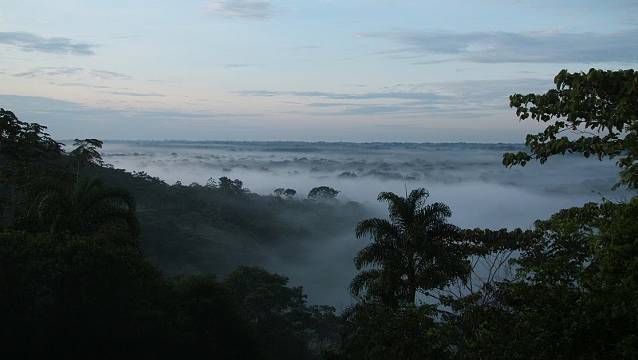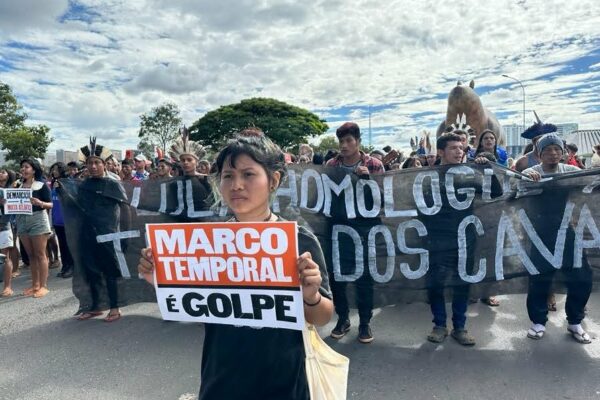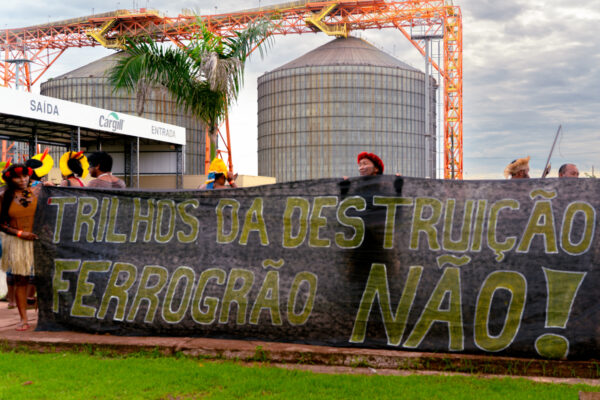
April 10th marks the presidential election in Peru in which the nation’s next leader will be chosen, or in the case of a close race, the five candidates representing the country’s most powerful political parties will be reduced to two candidates for the second round of elections on June 5th. The latest polling favors nationalist former-army officer Ollanta Humala of Gana Perú (formerly Partido Nacionalista) followed by right wing Keiko Fujimori – daughter of jailed ex-president Alberto Fujimori – of Fuerza 2011. Behind them in the polls are free-marketeer Pedro Pablo Kuczynski of Alianza por el Gran Cambio, former president Alejandro Toledo of the centrist Perú Posible party – who has steadily fallen from first to fourth place in the polls – and former Lima mayor Luis Castañeda of Solidaridad Nacional. The stage is set for a very close election, especially in a country where in the past over a quarter of the voting population has changed its preference right before the final vote. At Amazon Watch, we ask: What’s at stake for the Amazon region and its indigenous inhabitants in the upcoming election?
Although this will be the first national election after the Bagua massacre of 2009 – which left 34 indigenous people and police dead and dozens injured, exposing the nation, and arguably the world, to the problems affecting indigenous peoples in the Peruvian Amazon – little has been discussed in terms of comprehensive policies addressing indigenous and environmental issues. Not only has an indigenous agenda all but disappeared from the electoral debate, indigenous organizations and their leaders have been marginalized and almost entirely excluded from the political process. This may be due not only to the Garcia government’s aggressive criminalization of indigenous leaders and social movement participants in the wake of the Bagua protest, but also to the hierarchical power structure in the fractured Peruvian political system, in which a multicultural and multilingual nation is in constant confrontation with a monocultural, colonial state.
In the 2011 campaign there is a general lack of promotion of indigenous organizations and an absence of representation in Congress for this part of the population. Although some independent political figures and representatives from the Partido Nacionalista have affiliated themselves with indigenous demands in the past, no political party has consistently supported indigenous Amazonian groups’ claims in official forums. Without significant constitutional reform, political exclusion leaves indigenous groups few alternatives to make their voices heard other than through civil protest, and with it the very real potential for violent government repression.
A recent article in Otra Mirada describes how the different parties intend to address indigenous issues. Only Gana Perú and Perú Posible have promised to implement Convention 169 of the International Labor Organization (ILO), which recognizes the rights of indigenous peoples and was ratified by Peru in 1994 but never fully implemented in national law. Both parties also support the creation of mechanisms that they say would allow indigenous communities to benefit from natural resource extraction. Alianza por el Gran Cambio and Fuerza 2011 seem to regard the “indigenous problem” as limited to agrarian issues and the recognition of rural property ownership. No party proposes strategies to increase congressional representation for indigenous groups.
Convention 169 of the ILO establishes the need for consultation with indigenous communities prior to policy changes and activities that would affect their territories. One of the biggest points of contention between indigenous groups and the Peruvian state is the lack of consultation with indigenous peoples and affected communities before initiating projects and ratifying laws. The failure to consult indigenous peoples prior to enacting a packet of new laws in 2009 to implement the free trade agreement with the U.S., including a new Forestry Law governing the use and protection of the nation’s forests, was one of the main issues that led to the Bagua protests of 2009. Following Bagua, a special working group of indigenous people and the government developed a new consultation law to uphold Peru’s responsibilities under Convention 169. The law was approved by congress in May 2010, but was vetoed by president Alan Garcia. Of all the candidates in the upcoming election, only Humala and Toledo have promised to enforce compliance with Convention 169, while only Humala has promised to uphold the vetoed consultation law.
There is little mention of environmental policy by political parties or the mass media. None of the parties seem to accord the necessary urgency to environmental issues. Only Perú Posible has demonstrated any overt concern for environmental issues including climate change and deforestation in its policy plan, however, it warrants mention that the top contributors to Toledo’s campaign are Brazilian firms with major interests in development mega-projects across Peru and the Amazon, according to an article by Reuters.
Humala is the only candidate who proposes changing Peru’s Fujimori-era constitution and neoliberal economic model. The other candidates plan to continue the nation’s current economic trajectory focused on extractive industries and large-scale infrastructure development. This model, which has the backing of the World Bank, has serious implications for indigenous Amazonians and the rainforest: Since 2003 almost three quarters of the Peruvian Amazon has been opened up for oil and gas drilling and exploration by national and foreign companies. The continuation of the Fujimori model offers little hope for increased protection of these lands or indigenous peoples, as there is currently no political space to challenge the economic model and follow an alternative development plan that is sustainable and respects indigenous rights.













